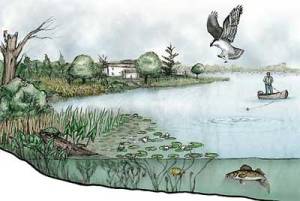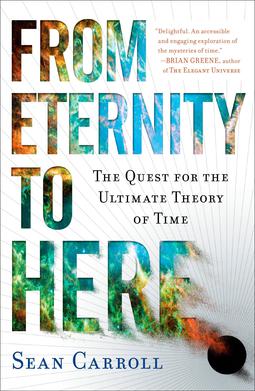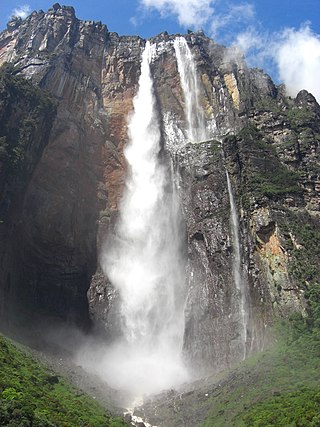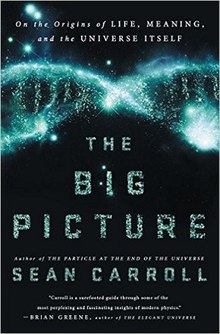
Pantheism is the belief that reality, the universe and the cosmos are identical with divinity and a supreme supernatural being or entity, pointing to the universe as being an immanent creator deity still expanding and creating, which has existed since the beginning of time, or that all things compose an all-encompassing, immanent god or goddess and regards the universe as a manifestation of a deity. This includes all astronomical objects being viewed as part of a sole deity.
Cosmogony is any model concerning the origin of the cosmos or the universe.

Determinism is a philosophical view, where all events are determined completely by previously existing causes. Deterministic theories throughout the history of philosophy have developed from diverse and sometimes overlapping motives and considerations. The opposite of determinism is some kind of indeterminism or randomness. Determinism is often contrasted with free will, although some philosophers claim that the two are compatible.
Naturalism is a literary movement beginning in the late nineteenth century, similar to literary realism in its rejection of Romanticism, but distinct in its embrace of determinism, detachment, scientific objectivism, and social commentary. Literary naturalism emphasizes observation and the scientific method in the fictional portrayal of reality. Naturalism includes detachment, in which the author maintains an impersonal tone and disinterested point of view; determinism, which is defined as the opposite of free will, in which a character's fate has been decided, even predetermined, by impersonal forces of nature beyond human control; and a sense that the universe itself is indifferent to human life. The novel would be an experiment where the author could discover and analyze the forces, or scientific laws, that influenced behavior, and these included emotion, heredity, and environment. The movement largely traces to the theories of French author Émile Zola.

Incompatibilism is the view that a deterministic universe is completely at odds with the notion that persons have free will, the latter being defined as the capacity of conscious agents to choose a future course of action among several available physical alternatives. Thus, incompatibilism implies that there is a dichotomy between determinism and free will, where philosophers must support at most one or the other, not both. The incompatibilist view is pursued further in at least three different ways: libertarians deny that the universe is deterministic, hard determinists deny that any free will exists, and pessimistic incompatibilists deny both that the universe is determined and that free will exists.
Naturalistic pantheism, also known as scientific pantheism, is a form of pantheism. It has been used in various ways such as to relate God or divinity with concrete things, determinism, or the substance of the universe. God, from these perspectives, is seen as the aggregate of all unified natural phenomena. The phrase has often been associated with the philosophy of Baruch Spinoza, although academics differ on how it is used.

Hard determinism is a view on free will which holds that determinism is true, that it is incompatible with free will, and therefore that free will does not exist. Although hard determinism generally refers to nomological determinism, it can also be a position taken with respect to other forms of determinism that necessitate the future in its entirety.
Predeterminism is the philosophy that all events of history, past, present and future, have been already decided or are already known, including human actions.
Naturalized epistemology is a collection of philosophic views concerned with the theory of knowledge that emphasize the role of natural scientific methods. This shared emphasis on scientific methods of studying knowledge shifts focus to the empirical processes of knowledge acquisition and away from many traditional philosophical questions. There are noteworthy distinctions within naturalized epistemology. Replacement naturalism maintains that traditional epistemology should be abandoned and replaced with the methodologies of the natural sciences. The general thesis of cooperative naturalism is that traditional epistemology can benefit in its inquiry by using the knowledge we have gained from the cognitive sciences. Substantive naturalism focuses on an asserted equality of facts of knowledge and natural facts.

Religious naturalism combines a naturalist worldview with ideals, perceptions, traditions, and values that have been traditionally associated with many religions or religious institutions. "Religious naturalism is a perspective that finds religious meaning in the natural world and rejects the notion of a supernatural realm." The term religious in this context is construed in general terms, separate from the traditions, customs, or beliefs of any one of the established religions.

This glossary of philosophy is a list of definitions of terms and concepts relevant to philosophy and related disciplines, including logic, ethics, and theology.
The following outline is provided as an overview of and topical guide to philosophy:
Metaphysical naturalism is a philosophical worldview which holds that there is nothing but natural elements, principles, and relations of the kind studied by the natural sciences. Methodological naturalism is a philosophical basis for science, for which metaphysical naturalism provides only one possible ontological foundation. Broadly, the corresponding theological perspective is religious naturalism or spiritual naturalism. More specifically, metaphysical naturalism rejects the supernatural concepts and explanations that are part of many religions.

Sean Michael Carroll is an American theoretical physicist and philosopher who specializes in quantum mechanics, gravity, and cosmology. He is (formerly) a research professor in the Walter Burke Institute for Theoretical Physics in the California Institute of Technology (Caltech) Department of Physics and an External Professor at the Santa Fe Institute. He is currently Homewood Professor of Natural Philosophy at Johns Hopkins University in Baltimore from the summer of 2022. He has been a contributor to the physics blog Cosmic Variance, and has published in scientific journals such as Nature as well as other publications, including The New York Times, Sky & Telescope and New Scientist. He is known for atheism, critique of theism and defense of naturalism. He is considered a prolific public speaker and science populariser. In 2007, Carroll was named NSF Distinguished Lecturer by the National Science Foundation.
Metaphysics is the branch of philosophy that investigates principles of reality transcending those of any particular science. Cosmology and ontology are traditional branches of metaphysics. It is concerned with explaining the fundamental nature of being and the world. Someone who studies metaphysics can be called either a "metaphysician" or a "metaphysicist".
The following outline is provided as an overview of and topical guide to metaphysics:

Spiritual naturalism, or naturalistic spirituality combines a naturalist approach to spiritual ways of looking at the world. Spiritual naturalism may have first been proposed by Joris-Karl Huysmans in 1895 in his book En Route.
Coming into prominence as a writer during the 1870s, Huysmans quickly established himself among a rising group of writers, the so-called Naturalist school, of whom Émile Zola was the acknowledged head...With Là-bas (1891), a novel which reflected the aesthetics of the spiritualist revival and the contemporary interest in the occult, Huysmans formulated for the first time an aesthetic theory which sought to synthesize the mundane and the transcendent: "spiritual Naturalism".

From Eternity to Here: The Quest for the Ultimate Theory of Time is a non-fiction book by American theoretical physicist Sean M. Carroll. The book was initially released on January 7, 2010 by Dutton.

In philosophy, naturalism is the idea or belief that only natural laws and forces operate in the universe.









